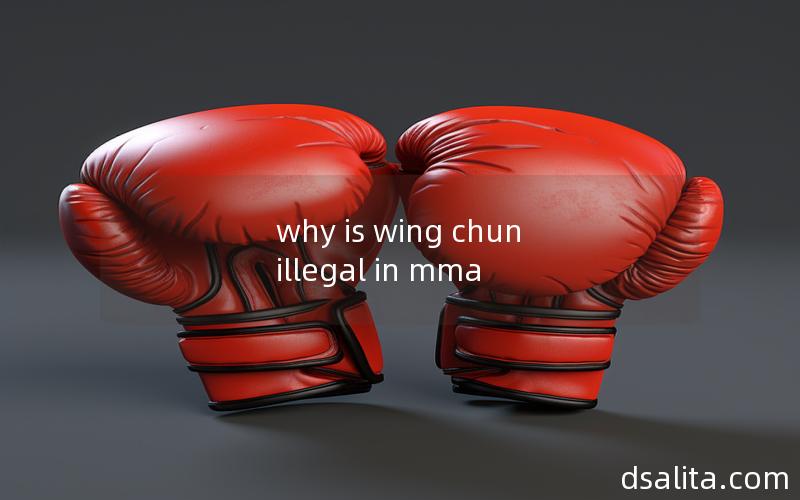Wing Chun, a traditional Chinese martial art, is not commonly seen in mixed martial arts (MMA) competitions. This article aims to explore the reasons why Wing Chun is not allowed or often discouraged in MMA matches. From different perspectives, including its training methods, effectiveness in real-life situations, rule limitations, lack of ground fighting techniques, limited sparring experience, and lack of competitive exposure, we will provide a detailed and comprehensive analysis of why Wing Chun is illegal in MMA.
Training Methods
Wing Chun’s training methods often focus on repetitive drills, forms, and techniques that may not translate well into the dynamic and unpredictable nature of MMA. The emphasis on close-quarters combat and sensitivity training may not adequately prepare practitioners for the range of techniques and strategies used in MMA matches.
Additionally, Wing Chun’s training typically involves a cooperative partner, limiting exposure to resistance and unpredictability. This lack of resistance training may hinder the development of effective techniques and strategies that can be applied in a competitive MMA setting.
Effectiveness in Real-Life Situations
While Wing Chun has been historically effective in self-defense situations, its techniques may not always be applicable in the MMA arena. MMA fighters are trained in various martial arts and have experience in adapting to different fighting styles, making it challenging for Wing Chun practitioners to rely solely on their techniques to succeed.
Furthermore, Wing Chun’s focus on close-quarters combat may not be as effective in a sport where fighters have the freedom to strike from various distances and employ different grappling techniques.
Rule Limitations
MMA competitions have specific rules and regulations that govern the techniques and strategies allowed during fights. Some of these rules, such as restrictions on strikes to the groin, throat, or back of the head, may limit the effectiveness of certain Wing Chun techniques that target these areas.
Additionally, the prohibition of certain techniques, such as eye gouging or strikes to the spine, may further restrict the application of Wing Chun techniques that rely on these vulnerable targets.
Lack of Ground Fighting Techniques
Wing Chun primarily focuses on stand-up striking techniques and does not extensively cover ground fighting or grappling techniques. MMA competitions often involve fighters utilizing both striking and grappling techniques, making it essential for participants to have a well-rounded skill set that includes ground fighting.
Without sufficient training in ground fighting techniques, Wing Chun practitioners may be at a disadvantage when facing opponents who excel in grappling and submissions.
Limited Sparring Experience
Sparring is a crucial component of MMA training, allowing fighters to test their techniques and strategies against resisting opponents. However, Wing Chun training often lacks sufficient sparring experience, as it tends to prioritize forms, drills, and theoretical applications.
The limited exposure to live sparring can hinder a Wing Chun practitioner’s ability to adapt quickly, read their opponent’s movements, and effectively implement their techniques in a dynamic and unpredictable environment.
Lack of Competitive Exposure
Wing Chun, as a traditional martial art, has not been widely exposed to competitive platforms like MMA. The lack of competitive experience and exposure can make it challenging for Wing Chun practitioners to effectively apply their skills and techniques in a high-pressure, competitive setting.
Without the opportunity to test and refine their techniques against skilled opponents in a competitive environment, Wing Chun practitioners may struggle to adapt to the intensity and pace of MMA matches.
Conclusion
While Wing Chun is a respected martial art with its own strengths and effectiveness in certain contexts, its limitations in the MMA arena have led to its exclusion from MMA competitions. Factors such as training methods, effectiveness in real-life situations, rule limitations, lack of ground fighting techniques, limited sparring experience, and lack of competitive exposure all contribute to the reasons why Wing Chun is often considered illegal or discouraged in MMA.
It is important to note that the exclusion of Wing Chun from MMA does not diminish its value as a martial art, but rather highlights the specific requirements and demands of the MMA sport.


 Dsalita Boxing
Dsalita Boxing






